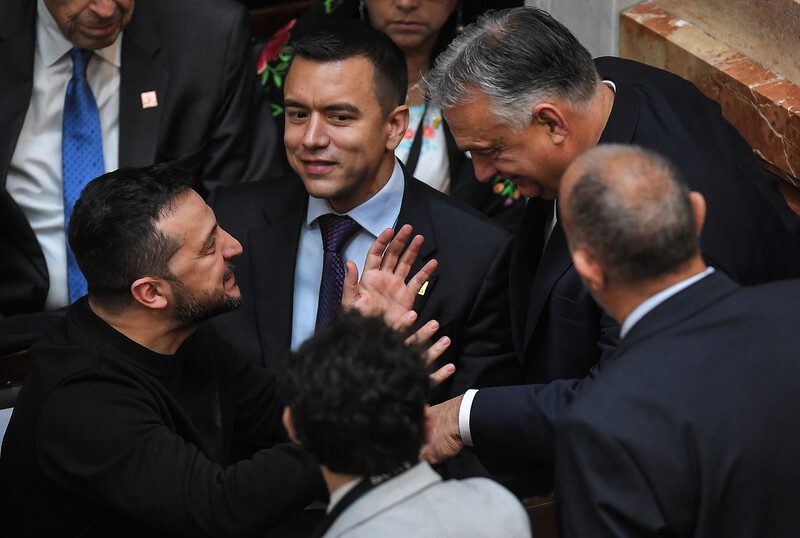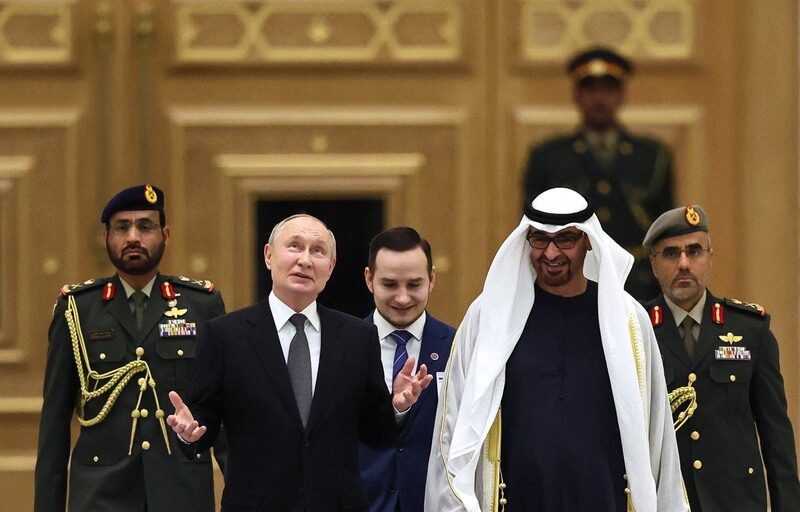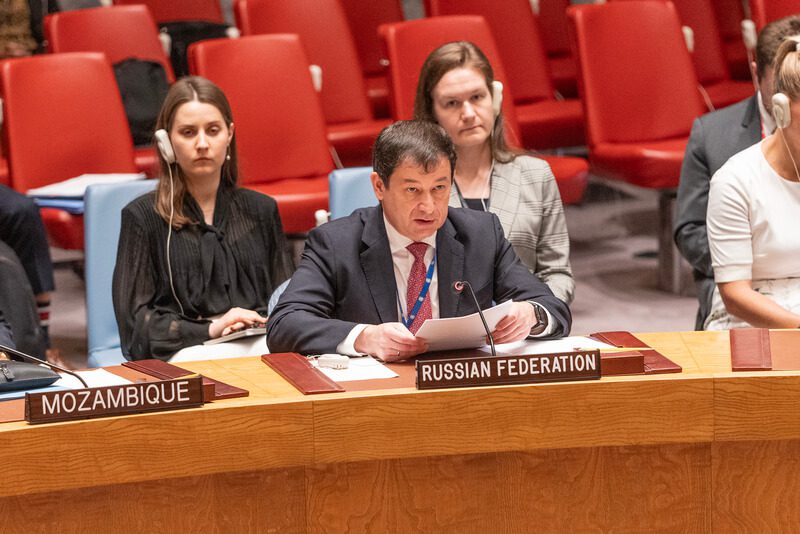Freezing the War and Negotiations with Russia: What Scenarios Is the West Preparing for Ukraine?

For the second year in a row, Ukraine has been not only holding the line at the front but also gradually liberating the occupied territories. In 2023, the focus was on a major spring and summer counteroffensive by the Armed Forces and a significant improvement in our positions. The President’s Office even talked about opening the summer season in Crimea for Ukrainians, but in reality, everything turned out to be not just different, but much more complicated.
In November, the Commander-in-Chief of the Armed Forces of Ukraine, Valeriy Zaluzhny, wrote a column for The Economist in which he stated that the war in Ukraine was entering a dangerous positional stage. This frank truth has prompted anti-Ukrainian political forces in Europe and the United States to question, if not the expediency of further support for Ukraine in general, then at least its scale. And there are more and more hints from the West about the need for a diplomatic solution to the Russian-Ukrainian conflict.
Svitlana Hudkova, editor of Zaborona, discussed the possibilities and scenarios for a political end to the war with experts.
The war in Ukraine is fading into the background
The topic of the war in Ukraine is gradually disappearing from the pages of leading Western publications. The focus of attention shifted especially on October 7, when Hamas invaded Israel and the IDF launched a powerful military operation in the Gaza Strip. But Europe and the United States have already moved on from the initial shock of Russia’s large-scale invasion of Ukraine and are increasingly focusing on their own problems, which have arisen in part because of the war, says military expert Ivan Stupak.

“A few weeks ago, I asked the British: how high is the interest in the war in Ukraine in Britain, is this topic present in the information space? Unfortunately, everyone answered that Ukraine is no longer in the first place. Yes, they are sorry that this is happening, but they are talking about the inability to invest as much money in us as in 2022-2023. If Ukraine had shown great success on the frontline, they could say that a little more and we would push the Russians down with the whole world. But there is also a political component: governments change, coalitions change, new leaders come in, and aid is gradually decreasing,” the expert explains.
Changes in political sentiment in Europe are evidenced by the growing popularity of far-right parties that oppose military support for Ukraine. At least, this is openly stated by the newly elected head of the Slovak government, Robert Fico, and the winner of the parliamentary elections in the Netherlands, the head of the far-right Freedom Party, Geert Wilders. Putin’s longtime friend and longtime Hungarian Prime Minister Viktor Orban can also be included. Of course, all this will have a bad effect on support for Ukraine.

President of Ukraine Volodymyr Zelensky (left), a representative of Ecuador, and Hungarian Prime Minister Viktor Orban take part in the inauguration ceremony of Argentina’s new President Javier Milea. December 10, 2023, Buenos Aires, Argentina. Photo: Fernando Gens / dpa (Photo by Fernando Gens / picture alliance via Getty Images)
USA: pre-election turbulence
One of the latest negative wake-up calls regarding Ukraine’s problems with receiving aid came on December 7, when U.S. congressmen once again failed to agree on a vote on a bill to allocate funds to support Ukraine, Israel, and Taiwan. According to official reports, the reluctance to give money to Kyiv had nothing to do with it. It’s all about the differences between Democrats and Republicans over the issue of strengthening the border with Mexico. But if Congress fails to agree and there is no aid, it could trigger a chain reaction within the EU.
“The United States is important to us in the sense that European countries look up to it. Let’s imagine that the United States does not agree to provide aid to Ukraine. Then Germany, the UK, Poland, and others may also think about why they need it, whether they can pull Ukraine on their own, and whether they shouldn’t consider other options. I am not saying that this will happen, but it is quite possible,” says Ivan Stupak.

According to international expert Maksym Nesvitailov, the joint aid package will still be voted on by Congress before December 25. But, unfortunately, Ukraine is really becoming a hostage to internal political squabbles in the U.S. and the EU, especially on the eve of the elections.
“I do not doubt that the Republicans realize the importance of supporting Ukraine for the United States. But there is a factor of domestic political problems, although I don’t think this means that they will withdraw their support and change their foreign policy strategy. 2024 will be a record year for elections in democratic countries, which are mostly our partners. And wherever the election campaigns take place, they are primarily focused on domestic political issues, not on helping others,” the international expert emphasizes.
He predicts that 2024 will be a year of serious political turbulence in the EU and the U.S., leading to a decrease in support for Ukraine. “For us, the main thing in 2024 is to survive, and plan global victories from 2025,” Nesvitailov believes.

Photo by the Sputnik Russian state news agency. Vladimir Putin and the President of the United Arab Emirates Sheikh Mohammed bin Zayed Al Nahyan attend a greeting ceremony before their talks in Abu Dhabi on December 6, 2023. Photo: Sergei SAVOSTYANOV / POOL / AFP
Negotiations with Russia
The U.S. and the EU have begun discussing peace talks with Ukraine — this was the headline on the website of the U.S. TV channel NBC News in early November. Citing two senior U.S. officials, one current and one former, the journalists wrote that the discussions took place in October at a meeting of the Contact Group on Ukraine’s Defense.
A few days later, Czech President Petr Pavel announced the likely start of the negotiation process. Austria also hopes for talks between Ukraine and Russia. In November, French President Emmanuel Macron said that it was “not yet time” for Ukraine to sit down at the negotiating table: the decision to negotiate should be made by Kyiv alone. But perhaps the time to “hold honest and good negotiations, return to the table, and find a solution with Russia” will come.
At the same time, Ukraine rejected talks with Russia. The National Security and Defense Council’s decision prohibits peace talks with a terrorist country to resolve a full-scale war as long as Vladimir Putin is president.
But in reality, Zelensky and Putin do not have to sit down together at the negotiating table, says Ivan Stupak. As an example, he cited the format in which the UN-mediated grain deal was signed.
“Of course, we are not talking about negotiations yet. But, as an option, the agreement can be signed with the mediation of the United States and China, where Ukraine will sign on one piece of paper with them, and Russia will sign on the second. This is an option where the United States and China assume responsibility that each of the parties to the war will fulfill the agreements. The only question is whether the Russians will fulfill their obligations. I believe 100% they will not because they have repeatedly proved it,” the expert says.
This is exactly what Ukraine should convey to the West, according to Maksym Nesvitailov. According to him, any war ends with negotiations and the signing of agreements, and this will happen one way or another. But in the current situation, at best, we will get a frozen conflict that will resume after some time.
“At worst, we will simply give Russia an operational pause so that it can accumulate resources to strike. Of course, there will be pressure from the West, and it will be difficult for us to cope with it. But we must convey our position and explain that no successful case would resolve this conflict and lead to peace. Russia will not stop being an aggressor until it receives a serious response to its actions until it suffers a tangible defeat. The Ukrainian case should serve as an example for all aggressors and dictators in the world showing that the civilized world takes it seriously. Until they feel this, they feel more confident,” the international expert says.

Russian Ambassador Dmitry Polyansky speaks at a meeting of the UN Security Council. The members of the Security Council discussed global food security caused by famine, including Russia’s withdrawal from the Black Sea Initiative, which allowed Ukraine to export grain to the world market: Lev Radin / Pacific Press / LightRocket via Getty Images
Possible freezing of the conflict: what are the options and the future of Ukraine?
Among the scenarios for the political end of the war, the West is actively considering the “Korean” and “German” scenarios. For example, former NATO Secretary General Anders Fogh Rasmussen proposed to extend NATO security guarantees only to the territory of Ukraine controlled by Kyiv, as was the case with West Germany in 1955.
And the former commander of NATO forces in Europe, James Stavridis, called for accepting the Russian occupation of the Southeast for some time and making peace according to the “Korean scenario.” Instead, Europe and the United States should help build up the territory controlled by Ukraine, develop the economy, and provide ironclad security guarantees, such as how South Korea was granted the status of a full partner of the United States under the 1953 treaty.
“We can consider the ‘German’, ‘Korean’ or even ‘Finnish’ scenarios. For example, 10% of Finland’s territory was taken away from it, so this option is also possible. Of course, it is unpleasant, but not the end of the world. But in any scenario, whether it is our victory or a truce, we must begin the process of maximum militarization so that the Russians are afraid to move again,” says Ivan Stupak.
According to the military expert, first of all, we have to rely on our forces and develop the defense industry. Joining NATO is also important, but Stupak believes that the Alliance will not accept us immediately after the war ends and doubts that the bloc will be able to protect us as a member state.
“In my opinion, NATO will not protect us, it has become weak. But we have written down in the Constitution the movement towards the Alliance, so we are moving towards it. We need it in terms of training, access to technology, the ability to purchase equipment and deploy joint production of aircraft, equipment, weapons, and more. Of course, we are interested in creating alternative military alliances. It could be Poland, the Baltic States, and the United Kingdom. It depends on who wants to create such an alliance with us. But we are counting only on ourselves,” the military expert emphasizes.







